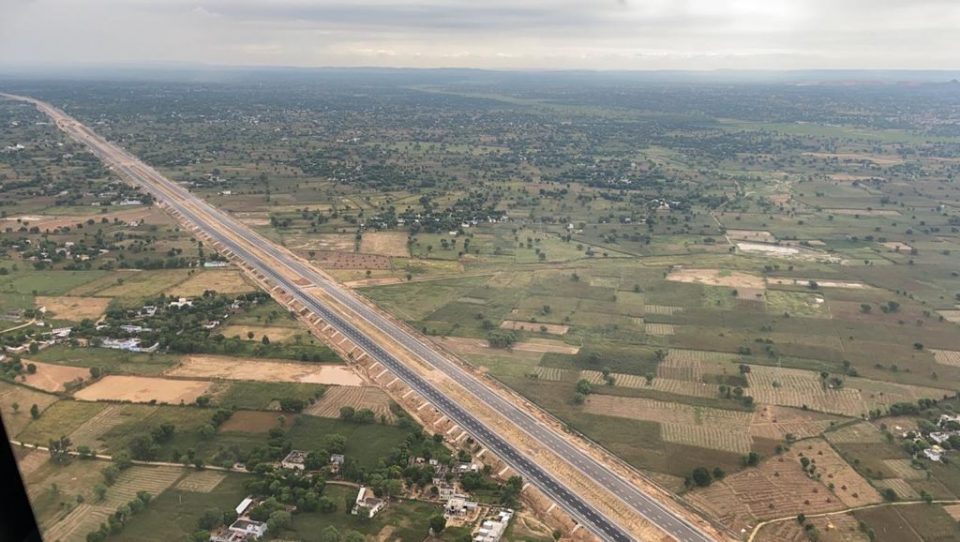
Mumbai-Delhi highway, India's longest road, getting ready: Details here

Union Minister for Road Transport and Highways Nitin Gadkari said the Delhi-Mumbai Expressway will halve the commute time between the national capital and the financial hub from nearly 24 hours to 12 hours and shorten the distance by 130 km.
Gadkari was in Haryana on Thursday (September 16) to review the progress of the longest expressway project in India. Haryana Chief Minister Manohar Lal Khattar and Union Minister Rao Inderjit Singh were also present.
The 8-lane expressway will cover Delhi, Haryana, Rajasthan, Madhya Pradesh and Gujarat. The ambitious project was kick started in 2018 and is likely to be completed by March, 2023.
The 1,380-km-long Delhi-Mumbai Expressway project will cost Rs 98,000 crore and has been billed as the longest expressway in India. It is expected to enhance connectivity between the national capital Delhi and financial capital Mumbai.
The expressway will connect urban centers of Delhi through Delhi-Faridabad-Sohna section of the corridor along with a spur to Jewar Airport and Jawaharlal Nehru Port to Mumbai through a spur in Mumbai.
Prominent features of the Delhi-Mumbai Expressway
The expressway will improve the connectivity to economic hubs like Jaipur, Kishangarh, Ajmer, Kota, Chittorgarh, Udaipur, Bhopal, Ujjain, Indore, Ahmedabad, Vadodara, and Surat bringing economic prosperity to millions.
Also read: Can you guess the name of India’s richest CEO?
The road will reduce distance between Delhi and Mumbai by 130 kms and cut travel time from 24 hours to 12 hours, resulting in annual fuel savings of more than 320 million liters and reduce CO2 emissions by 850 million kg, which is equivalent to the planting of 40 million trees, a statement issued by the Union Road Surface Transport Ministry stated.
In addition, it is the only expressway in Asia and only the second in the world to feature animal overpasses to facilitate unrestricted movement of wildlife. The road will have three animal and five overpasses with a combined length of seven kms dedicated for unencumbered wildlife movement.
दिल्ली-मुंबई एक्सप्रेस-वे के दो दिवसीय निरीक्षण कार्यक्रम के अपने दूसरे पड़ाव में राजस्थान के दौसा में कार्य के प्रगति का निरीक्षण किया। #PragatiKaHighway #DelhiMumbaiExpressway pic.twitter.com/iD0qReIG2I
— Nitin Gadkari (@nitin_gadkari) September 16, 2021
The expressway will also include two iconic 8 lane tunnels, one tunneling through Mukundra sanctuary without disturbing the endangered fauna in the region for 4 km and the second 4-km eight-lane-tunnel will pass through the Matheran eco-sensitive zone.
Appeals farmers to not to sell lands to builders
Gadkari said the farmers who gave their land for building the expressway were paid 1.5 times more than the market price. “I appeal to farmers to not sell their land to builders and developers, who usually profit when prices increase after road construction. They (farmers) will get more money if they develop the land,” he said.
More toll = trouble-free ride
When asked about toll taxes making road travel costly on national highways, the Union minister said, “If you want good services, you have to pay for it. If one wants to conduct a programme in an air-conditioned hall, one will have to pay the rent (kiraya). Otherwise, a wedding can be conducted in a field (maidan) for free as well.”
Haryana Chief Minister Manohar Lal Khattar expressed hope that the Delhi-Mumbai expressway will bring economic prosperity in Palwal, Nuh and Gurgaon regions of Haryana and generate employment opportunities as well.
(With inputs from agencies)

